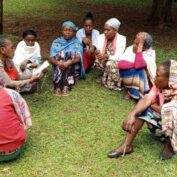
Climate Resilience through Empowering Women (CREW) Project
CREW is helping to boost rural livelihoods, preparing farmers to navigate climate risks, and supporting women's leadership in coffee in Ethiopia

CREW is helping to boost rural livelihoods, preparing farmers to navigate climate risks, and supporting women's leadership in coffee in Ethiopia
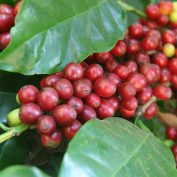
The Rwanda INC program is a 4-year initiative funded by the European Union, JDE Peet’s, and the Government of Rwanda to unlock the potential of Rwanda's coffee value chain by helping farmers, washing stations, and service providers access the information and financing they need to provide high-quality, high-value coffee to local, regional, and international markets.
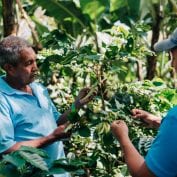
The PROLEMPA project will improve the incomes of 2,200 Honduran coffee producers by promoting key agricultural techniques that boost yields and quality, and by linking farmers to new formal buyers
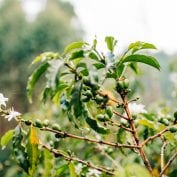
The REgrow Yirga project funded by USDA, JDE, and Peet's Coffee, in partnership with Kew, aims to enhance the sustainable competitiveness of the Ethiopian coffee sector through increased productivity, improved supply chain performance, strengthened market linkages, and a more facilitative enabling environment.
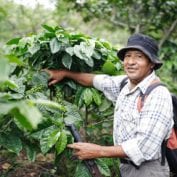
The Maximizing Opportunities in Coffee and Cacao in the Americas (MOCCA) project was a seven-year initiative funded by the U.S. Department of Agriculture (USDA) through the Food for Progress program. Implemented by TechnoServe and partners, MOCCA worked to support over 120,000 farmers across Guatemala, El Salvador, Honduras, Nicaragua, Ecuador, and Peru to overcome barriers to effectively rehabilitating and renovating their coffee and cacao trees.
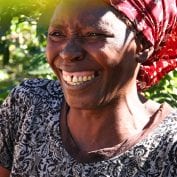
Zimbabwe has a long history of coffee production and was known for producing some of Africa’s best coffee. Production peaked in the late 1980s, but dropped significantly in the early 2000s because of economic hardship and climate shocks.

The Coffee Farm College Program is a four-year training program that aims to improve incomes for 30,000 coffee farming households in Central and Western Uganda by increasing their coffee farm productivity.
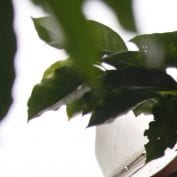
The expansion of the Sustainable Agricultural Improvement project (Mejoramiento Agrícola Sostenible, or MAS, in Spanish) targets small and medium-scale coffee and bean farmers in the central region of Honduras.
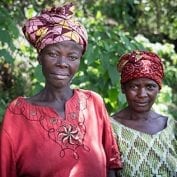
The SVC is providing training to 15,000 coffee farming households, over the course of five years, and delivering technical assistance to cooperatives and other market actors to bolster the specialty coffee value chain in South Kivu. The project aims to increase farmer yields by 30 percent, while supporting local…
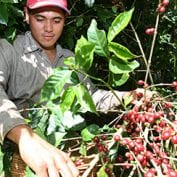
In 2017, TechnoServe and the Global Coffee Platform published a study on smallholder coffee production that identified opportunities for potential benefits to coffee farmers from improved farm profitability and increased efficiency along the supply chain.